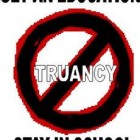Peter Lindsay On Bad Teachers and the Language of Young People
|
A good way to think about what makes for a really good teacher is to ask what makes for a really bad one. Not only is failure in education easier to see than success, its presence is far more effective at highlighting just what the art of teaching is all about. Nothing, for instance, demonstrates the importance of enthusiasm more readily than a monotoned teacher lulling a class into peaceful slumber. If you want other examples, have a look at this summer’s movie, Bad Teacher. That isn’t an artistic recommendation; the movie has little to offer from that perspective.








